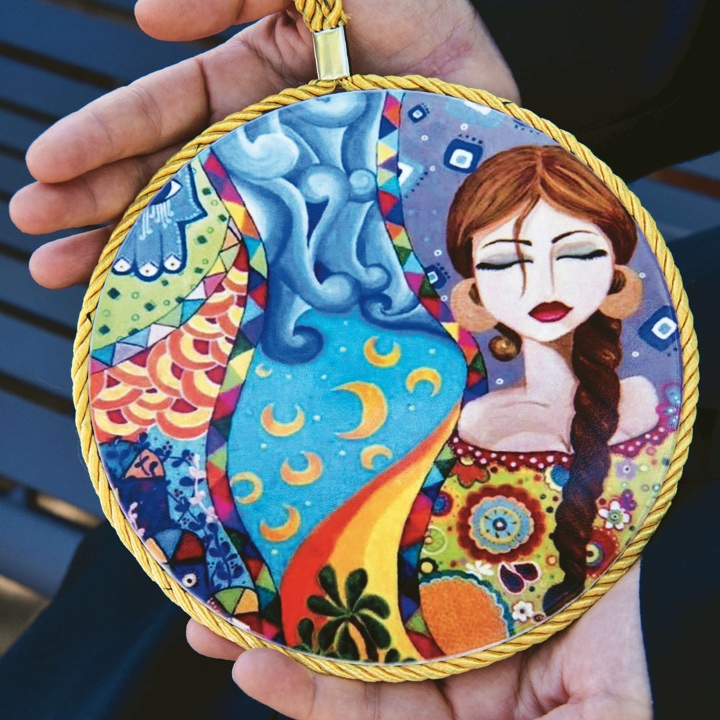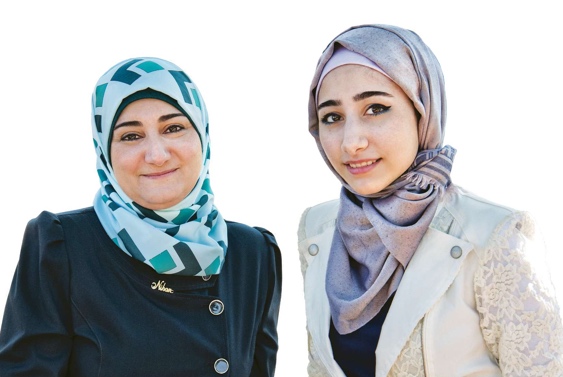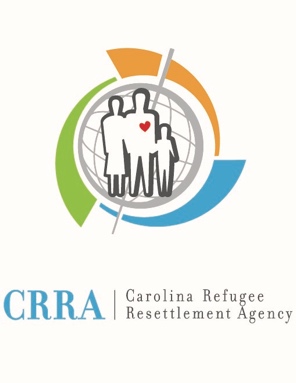
Welcoming Community
Iraqi Refugee Family Finds Supportive Home in Ballantyne
By Vanessa Infanzon
Ballantyne is a diverse and vibrant community made up of individuals and families enjoying local activities, schools and shops.
One such resident, Mariam, 19, graduated from Ardrey Kell High School and now at-tends Central Piedmont Community College. Like any teen, she feels the pressure from her parents to choose a major. Mariam’s mom, Nihal, wants her to follow in her footsteps and be a doctor, but Mariam’s not sure what she wants to do with the rest of her life. Mariam’s struggles sound like those of any ordinary teen living in Ballantyne, but her family’s road has had more twists and turns than most.
The family arrived in the United States just three years ago as refugees from Iraq. They graciously agreed to be interviewed for this story but requested that their last name be withheld.
In 2004, when Iraq was at war, Nihal and her husband, Duraid, left Iraq with their children, Mariam and Mustafa, to move to Syria to be safer. (Today Mustafa, 14, is a freshman at Ardrey Kell.)
At Risk Again
In 2009, the family applied to the United Nations (U.N.) for refugee status. When war came to Syria in 2011, their safety was at risk again. The family returned to Iraq, worried that the move would close their case with the U.N.
Much to their surprise, Nihal’s sister and sponsor received a call from the Carolina Refugee Resettlement Agency, letting her know that the family’s refugee status had been accepted and the family would be moving to Charlotte in one month. Since Nihal’s sister lived in Ballantyne, it was the natural choice for the family’s destination.
Since their arrival in 2014, the family has found a local support system. “Life here is so nice,” says Nihal, 46. “Everything is available. The weather, the clean roads, the system, the school(s) and many of the people who say to you that, ‘We love you, we like you, we want you to be here.’”
But moving to the U.S. has not been without its struggles. In Iraq, Nihal was a general practitioner, later specializing as an anesthesiologist, and her husband, a computer engineer. It has been difficult to find jobs in their fields. Nihal would need seven more years of education to qualify for a comparable medical position in the U.S. For now, she works from home as an online medical interpreter. Duraid, 55, continues to seek suitable employment.
Educating Others
For Mariam, she has taken an active role in educating the community about her culture and religion.


She gave two PowerPoint presentations to more than 50 students and teachers at Ardrey Kell. Mariam shared the similarities between Judaism, Christianity and Islam. Using statistics, personal experience and quotes from the Quran, she dispelled stereotypes and misinformation about Islam and the refugee experience.
“Sometimes they (teenagers) would look at me when I would tell them my story; they would be like, ‘No way that happened to you,’” Mariam says. She sees herself as a good Muslim individual, one who can teach others.
“They only listen to the news, and news does not tell everything,” she says.
Charlotte Agency Resettles Refugees
Carolina Refugee Resettlement Agency (CRRA) is the Charlotte affiliate of HIAS, one of nine national organizations that legally resettles refugees.
CRRA is funded by both the U.S. Department of State and the Office of Refugee Resettlement, an office within the U.S. Department of Health and Human Services.
The agency plays a critical role in helping refugees establish new lives. CRRA follows specific resettlement requirements that include connecting families to the health department, Social Security office, English-as-a-second-language classes, schools and jobs. After 90 days, refugees are expected to be financially self-sufficient. To learn more about the organization, go to www.carolinarefugee.org.



